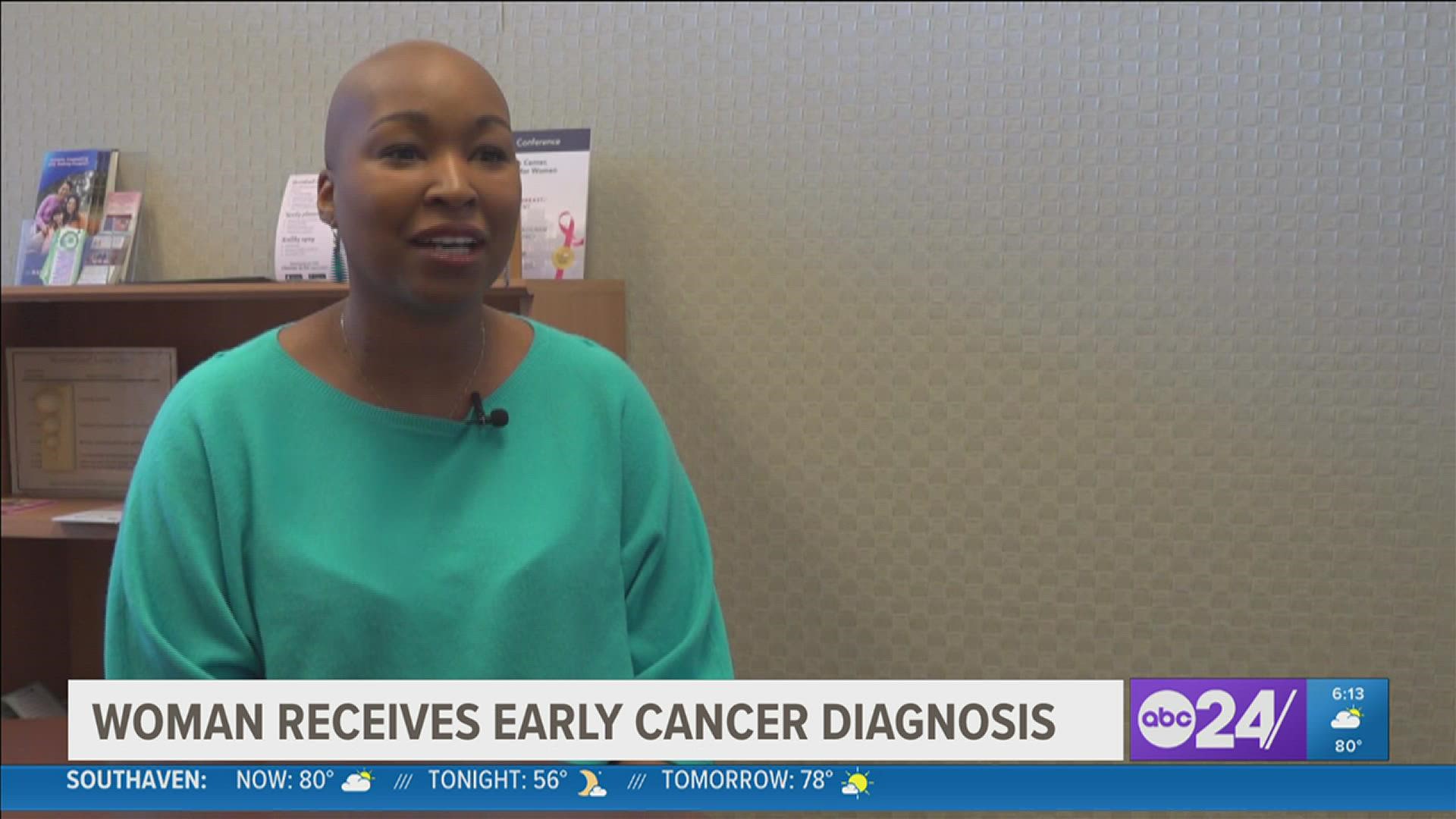MEMPHIS, Tenn. — Breast cancer mostly occurs in older women; however, the Centers for Disease Control and Prevention said about 9% of all new breast cancer cases are women under the age of 45.
Ellé Coleman was diagnosed at an early age and currently going through treatment.
Your feelings inside have a way of shining on the outside.
“If you see me, that’s what you see. It’s a smile always,” said Coleman.
That is especially true for Coleman. “I just recently got married last October,” said Coleman.
It is a life change followed by another she did not see coming.
“I had a lump that we had already found. It had gotten bigger during COVID,” said Coleman.
She got a biopsy on that lump in her breast.
“Thankfully, they caught it early. They diagnosed me with stage one B,” said Coleman.
She had breast cancer.
“I didn’t want to accept it. I was like, ‘Mmm …’ Because I worked so hard. I knew my aunt passed away from it. I saw my dad go through it and helped through that,” said Coleman. “I was angry just to be honest. I was livid because I’m one of those that really focuses on healthy eating, exercise.”
Coleman is only 41 years old. “I just got married. I don’t have any children,” said Coleman. “I think I was more angry about it because at that point, I felt like the choice was taken from me.”
Through her anger, Coleman still found a reason to smile.
“My hair doesn’t define me. My breasts doesn’t define me. Those things don’t make me who I am. I am who I am. I was born who I am whether I have those things or not,” said Coleman.
Her strength came out of her smile.
“I think when I was first diagnosed versus now, over time, it allowed me to see, ‘Elle, you’re a lot stronger than you thought you were. You can do this,’” said Coleman. “I’m just excited and I’m glad that I made it to this point. At one point, I didn’t think I could make it to this point.”
Her next point is even bigger than her first. “Wanting to be there to help somebody else … Like someone said, I’m not by myself doing this and the people that were before me … they’re the reason why I’m able to keep going. I want to be the reason for other people to keep going,’” said Coleman.
To keep going is enough for Coleman to smile.
She tested positive for the BRACA-2 genetic mutation found in some breast cancer patients. She will have a double mastectomy and hysterectomy this year. She wants everyone to know that early detection is key.

